In an era marked by shifting religious landscapes, atheism is gaining prominence in the United States and globally. Based on a survey conducted by the Pew Research Center and subsequent surveys we can see the following:
1. The Rise of American Atheism

According to Pew Research Center surveys conducted in 2018 and 2019, the proportion of American adults identifying as atheists has doubled over the past decade, reaching 4%. Additionally, 5% of Americans now describe themselves as agnostics.
“The Center estimates that in 2020, about 64% of Americans, including children, were Christian. People who are religiously unaffiliated, sometimes called religious “nones,” accounted for 30% of the U.S. population. Adherents of all other religions – including Jews, Muslims, Hindus and Buddhists – totaled about 6%.”- Modeling the Future of Religion in America, Pew Research Center
2. Defining Atheism
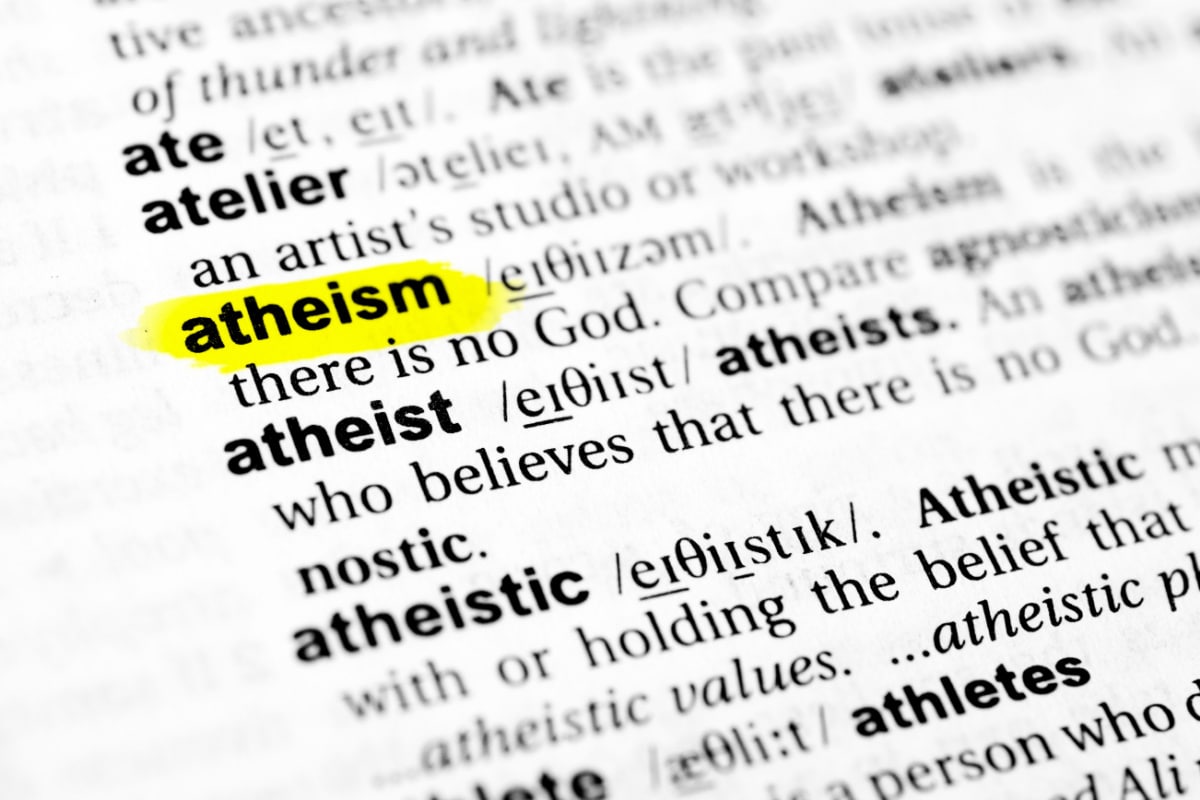
Merriam-Webster defines an atheist as “a person who does not believe in the existence of a god or any gods.” 81% of U.S. atheists adhere to this definition, categorically denying the existence of God or any higher power.
3. Atheism in Europe

Western Europe boasts a significant atheist population, with countries like Belgium (19%), Denmark (16%), and the Czech Republic (25%) leading the way. In contrast, Central and Eastern Europe, despite its Soviet history, witnesses a lesser prevalence of atheism.
4. The Demographics of U.S. Atheists

U.S. atheists tend to be predominantly male (68%) and relatively young, with a median age of 34. They also display higher educational attainment, with 43% holding college degrees. Moreover, a substantial 78% of them are white. U.S. athiests also tend to identify with political liberalism.
5. Religious Insignificance & The Meaning Of Life
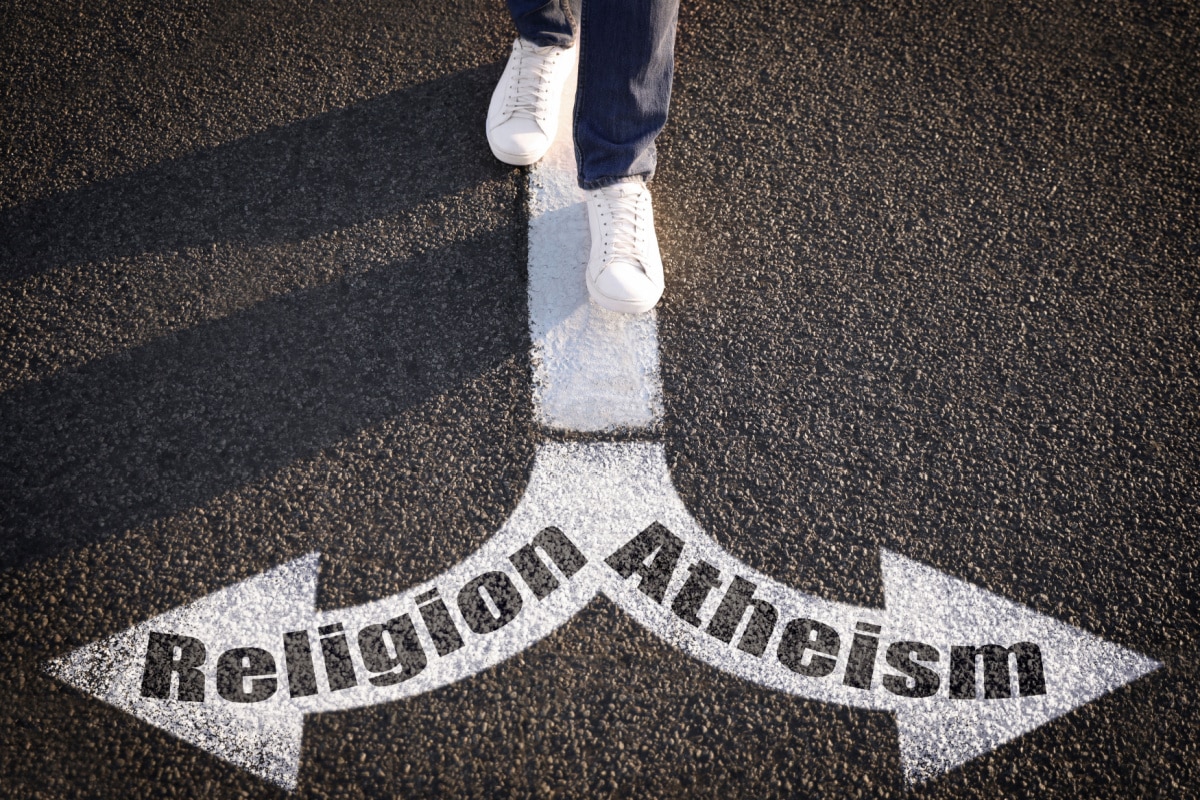
Atheists in the U.S. largely deem religion as unimportant in their lives (93%) and seldom engage in prayer (97%). However, they don’t shy away from contemplating life’s meaning and experiencing spiritual wonder. One study shows “atheists are more likely than U.S. Christians to say they often feel a sense of wonder about the universe (54% vs. 45%).”
6. Sources of Meaning for Atheists
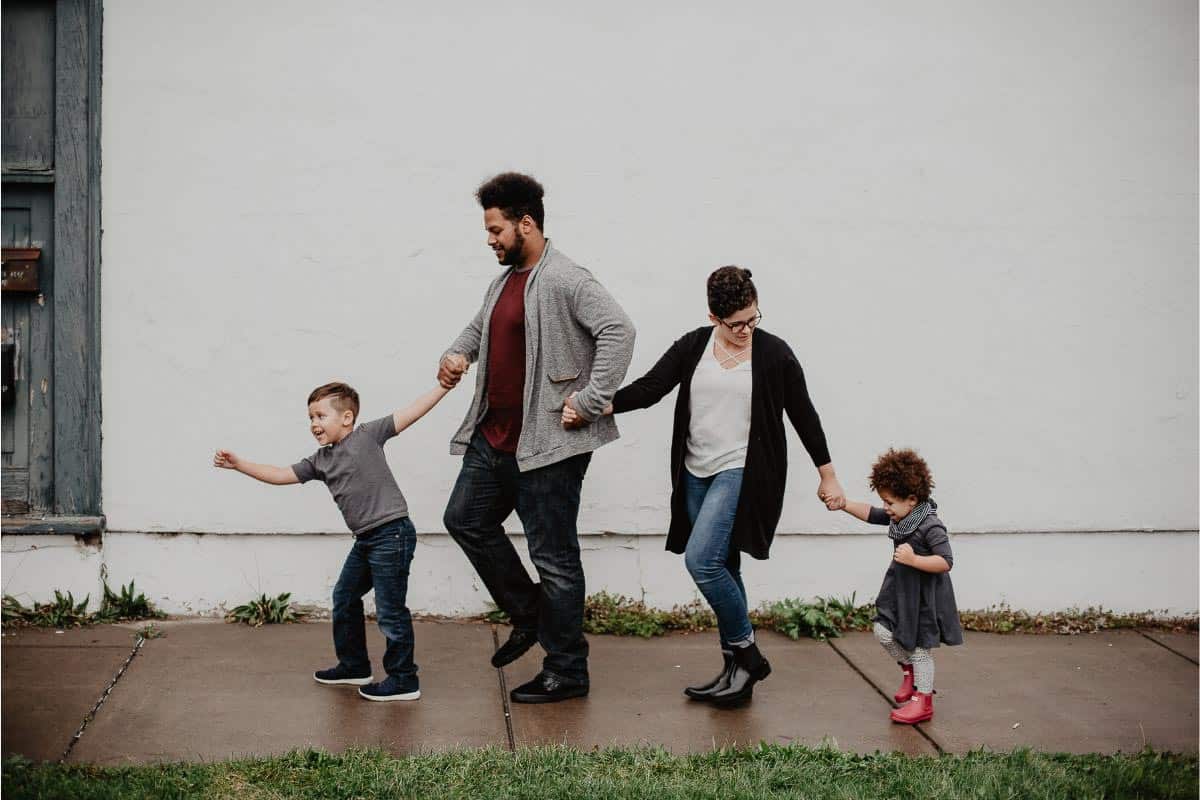
Family remains a significant source of meaning for most American atheists, but they also express deep satisfaction in hobbies (26%), financial pursuits, creative endeavors, travel, and leisure activities.
7. Skepticism Towards Religion
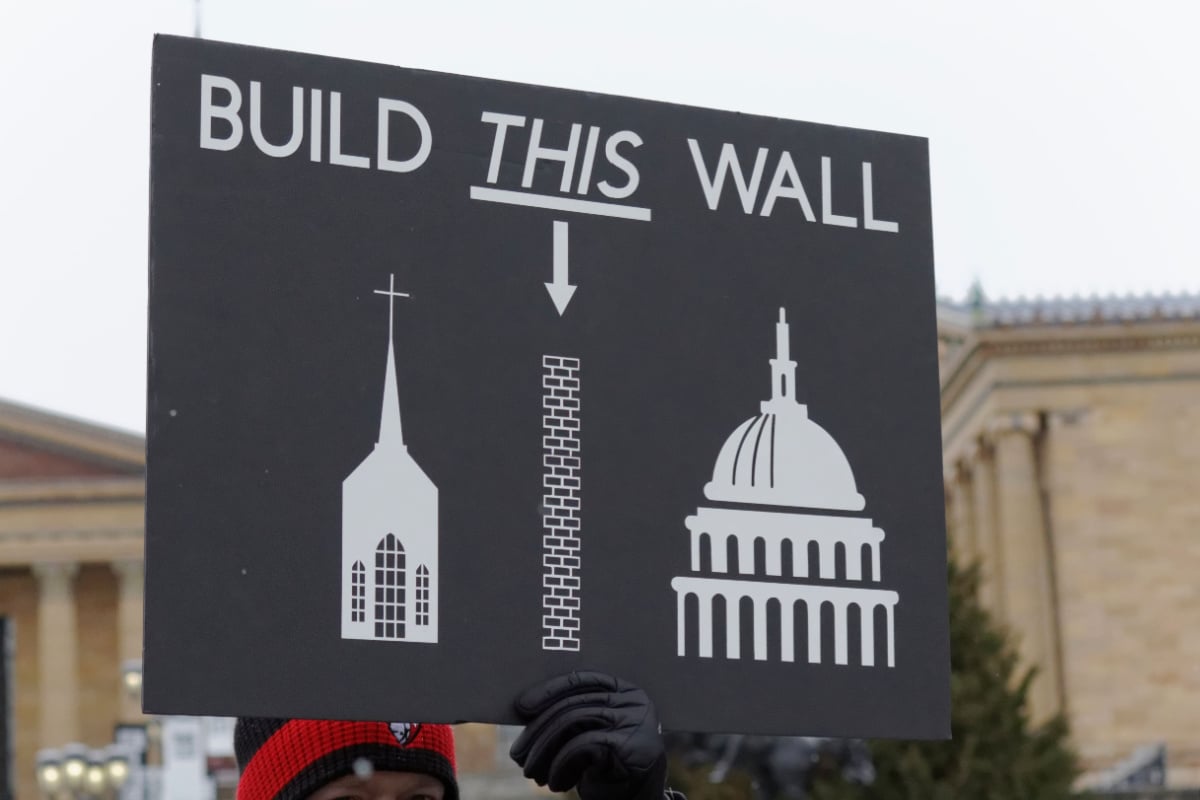
U.S. atheists harbor negative views about religion’s role in society, with 70% believing that religious organizations do more harm than good. A significant majority (93%) assert that religious institutions wield excessive influence in politics.
8. The Informed Atheist

Surprisingly, atheists demonstrate impressive religious knowledge, answering an average of 18 out of 32 fact-based questions correctly. They excel even in Christianity-related questions and show an awareness of constitutional principles.
9. Morality Without God

The majority of Americans (56%) believe that belief in God is not a prerequisite for moral behavior. This contrasts with some regions where nearly everyone insists on the necessity of belief in God for morality.
10. Public Perception

Despite their growing numbers, atheists face cooler public perception in the U.S., with an average rating of 49 on the “feeling thermometer.” This places them on par with Muslims but lower than other religious groups.
In conclusion, atheism’s trajectory is marked by growth and changing perceptions. As the religious landscape evolves, understanding the beliefs and characteristics of atheists becomes increasingly vital.
This summary article is based on the work conducted by the Pew Research Center
10 Things Even Atheists Could Take Away From Reading The Bible

Ever thought of the Bible as a fascinating read, even if you’re not religious? It’s like delving into a rich tapestry of stories, filled with history, drama, and life lessons. For atheists, it’s a chance to explore tales that have shaped cultures and sparked conversations for millennia. So, whether you’re in it for the narratives or the nuggets of wisdom, there’s something in there for everyone. Here are a few things everyone can take from the Bible.
Read: 10 Things Even Atheists Could Take Away From Reading The Bible
Anti-Choice Community Ironically Arguing for a Woman’s Right to Choose with “Abortion Reversal” Laws
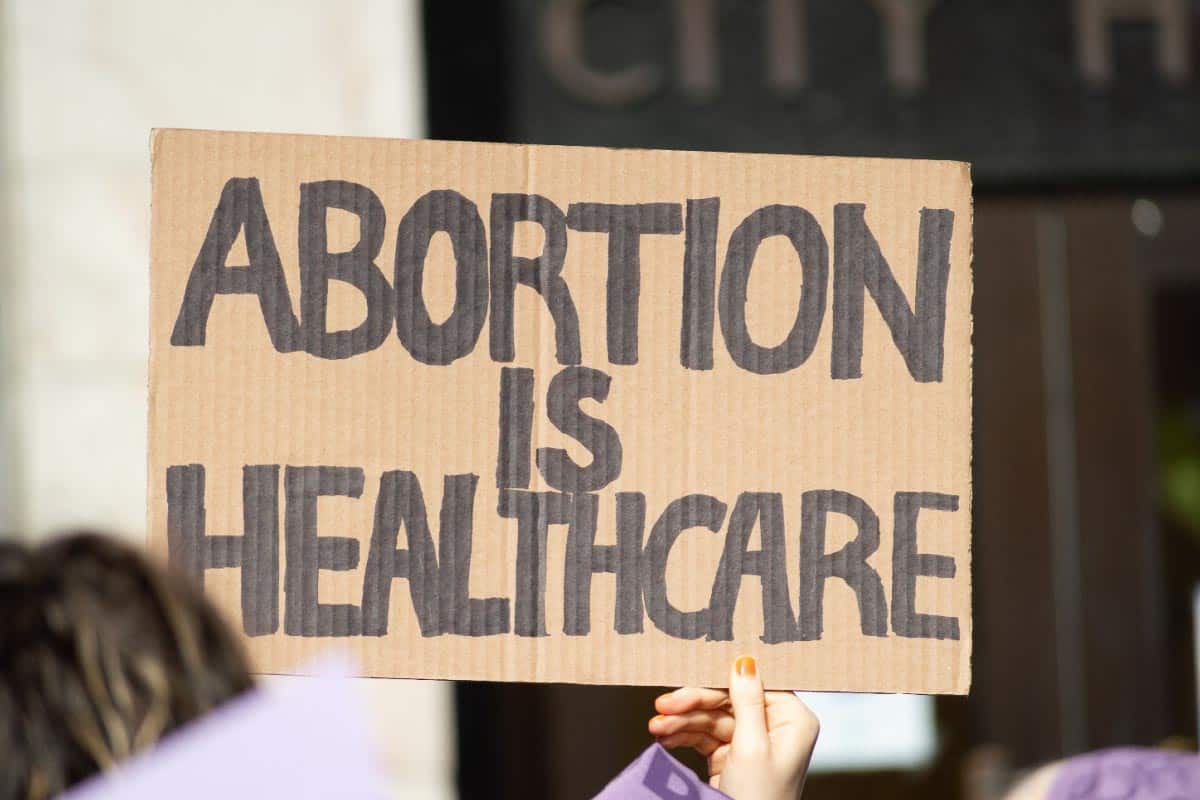
In recent years, the topic of “abortion reversal” has sparked heated debates, with anti-abortion organizations pushing state lawmakers to promote this controversial and unproven treatment. This article delves into the heart of the matter, exploring the science, the legal landscape, and the ethical implications surrounding abortion reversal. Read: Anti-Choice Community Ironically Arguing for a Woman’s Right to Choose with “Abortion Reversal” Laws
When Doctors Refuse Care Based On Their Own Beliefs: Coming To An ER Near You

In recent times, healthcare legislation has taken a thought-provoking turn with the emergence of ‘conscience’ bills. These bills grant medical providers significant legal protection when it comes to opting out of specific medical procedures and treatments based on their ethical, moral, or religious beliefs.
Read: When Doctors Refuse Care Based On Their Own Beliefs: Coming To An ER Near You
Exploring Your Options: How To Get Health Insurance When You’ve Lost Your Job

Losing your job can be tough, and one of the pressing concerns that often follows is how to secure health insurance without the safety net of an employer’s coverage. We understand that this can be a challenging situation, but we’ve got you covered. In this comprehensive guide, we’ll walk you through various options to obtain health insurance while unemployed. Let’s dive right in!
Read: Exploring Your Options: How To Get Health Insurance When You’ve Lost Your Job







